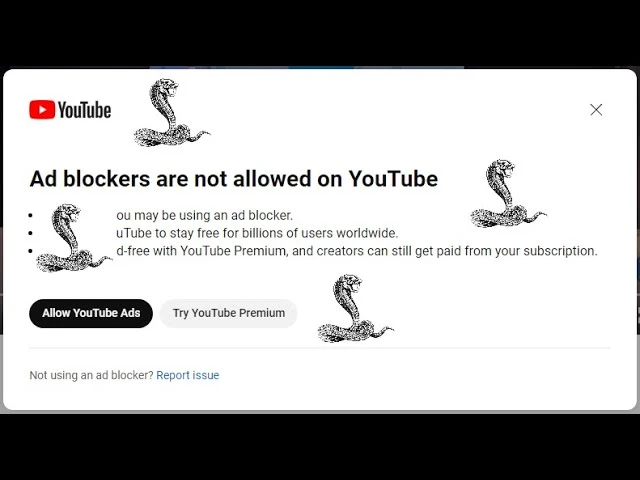119
Youtube and others want their users to disable adblockers to increase their revenue from advertisements, but will forcing the users to so do be effective in the long-term?
What unexpected consequences could occur? Why do people use adblockers in the first place? Why aren't more users buying Youtube Premium as a solution? Do adblock users still contribute value to websites? Can websites effectively enforce such policies? Are there ways to naturally encourage more users to disable their adblockers instead?
Enjoy my informal and assorted ramblings as I learn basic video editing skills.
For more examples of the Cobra Effect, here is a playlist: https://www.youtube.com/watch?v=1lUrH4Sbgh8&list=PLBuns9Evn1w9XhnH7vVh_7C65wJbaBECK
Be aware: The publisher of this series, Reason TV, hit the nail on the head with exploring this concept, but they do have a HEAVY libertarian bias, and I do not agree with everything that they publish. Be aware before you watch a series that could alter your recommendations.
Supplemental links and sources will (slowly) be updated here. I should have done so in the first place, but future videos won't have this issue.
Adblocker legality in Germany: https://arstechnica.com/tech-policy/2016/11/adblock-plus-wins-its-6th-court-case-brought-by-der-spiegel/
FBI on Adblockers: https://www.ic3.gov/Media/Y2022/PSA221221?=8324278624
NSA, CIA, and others on adblockers: https://www.documentcloud.org/documents/21068028-wyden-letter-to-omb-on-ad-blocking
Interesting article from Australia not in video: https://www.computerworld.com/article/3455730/government-agencies-ordered-to-block-online-ads-flash.html
Good info on adblock detection and GDPR compliance: https://iabeurope.eu/wp-content/uploads/2019/08/20160516-IABEU_Guidance_AdBlockerDetection.pdf
Insight on undisclosed ads: https://www.vox.com/recode/23197348/tiktok-ad-sponcon-influencers
Several cases where a website agreement was not enforceable (not the same as legal precedence):
https://www.lexisnexis.com/community/casebrief/p/casebrief-specht-v-netscape-commc-ns-corp
https://www.lexisnexis.com/community/casebrief/p/casebrief-nguyen-v-barnes-noble-inc
https://www.lexisnexis.com/community/casebrief/p/casebrief-meyer-v-uber-techs-inc



I maintain that when YouTube goes away there won’t be a free alternative of the same scale that replaces it
Thank God
Pornhub could start Videohub tomorrow and shake things up if they really wanted to.
Otherwise there’s Odysee (bad name, linked to crypto but good interface) and Peertube (federated but searches aren’t* so it will never catch on), but people aren’t too fond of those.
* I know about Sepia Search. People shouldn’t have to use yet another website to find the videos they want on Peertube. It’s stupid.
Pornhub could do that, but there’s a reason they haven’t. Video delivery is insanely complex and expensive and consumer tolerance for advertising on those platforms is low. With no other way to sustain and income from it the only option will be loads of smaller sites or a paid site.
Probably, no other website will be able to capitalize on the early internet and a lack of good video sites.
YouTube isn’t “going away”. What could happen is a lot of people switch to something better.
Just like a whole bunch of people have switched to Lemmy, which is better than Reddit. YouTube would still exist, at least for a while, just like Reddit still exists.
Everything goes away eventually. If YouTube stops being valuable to Google, it’s going away.
Yeah, sites like peertube will never catch on besides any small techy circles. Any alternative will have to be centralized, that’s the only way they’ll get ad companies to their platform. Without ad companies, creators will have to revenue and no incentive to keep making videos on that platform.
Maybe… I think there is an argument to be made for Vimeo